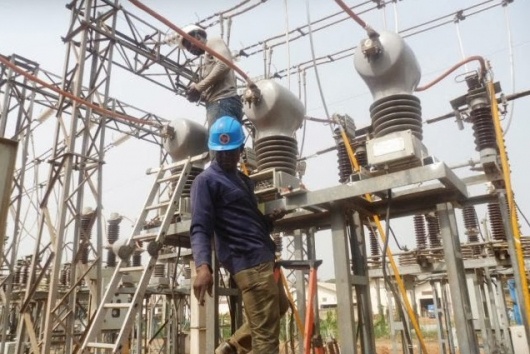The Association of Ghana Industries (AGI) has kicked against Volta River Authority (VRA)’s intended implementation of a regulation that seeks to increase energy costs to industry by over 75 percent.
In a recent proposal to Government to intervene in the matter and restrain VRA from carrying out the increment, AGI noted that the intended implementation of Regulation Five, Subsection Two of LI 1937 of 2008 on Electricity Regulation could adversely affect the interest of manufacturing industries and increase the per unit energy cost by more than 75 per cent for some special load tariff-high voltage consumers.
The proposal for the 2013 Interim National Budget was submitted to Seth Tekper, Minister of Finance and Economic Planning.
AGI argues that until the Ghana Gas comes on stream to power its thermal plants, energy costs will be unbearable for industry.
Regulation Five, Subsection Two of the Electricity According to Regulation 2008 LI 1937 states: “electricity generated from Akosombo and Kpong hydro dams shall not be subjects of a bilateral contract.”
AGI also proposed a partnership programme between the Association of Road Contractors and the Government to support the procurement of road construction equipment from overseas road equipment manufacturers.
It further suggested that a loan should be sourced from the China Exim Bank to build the capacity of local road contractors to enable the contractors secure more contracts.
Additionally, it advised that the government’s task force should liaise with steel manufacturers and regulatory bodies to strengthen the enforcement of the ban.
The Association said until the ban was enforced, the local steel manufacturing industry would be starved of the ferrous scrap raw materials needed for their production process.
The AGI said the influx of foreign products to Ghana pose a major threat to the survival of the country’s manufacturing industries.
“Some of the imports are smuggled into the country,” it said.
“Imports which range from food items, drinks, textiles and fabrics, clothes, foot wears, furniture, mobile phones, aluminium products to paper are often under-declared and misrepresented, and they are therefore able to sell at half price or less further destroying our weak manufacturing base.”
It proposed that government’s taskforce should liaise with textile manufacturers and regulatory bodies responsible for imports and specific aspects of consumer protection to strengthen the enforcement of their mandate.
It noted that copyright infringement of local textile manufacturers such as copying of local designs, logos and brand names was still a major setback to the development of the local textile industry.
On agriculture, AGI proposed that government should set aside a fund to subsidise the farming of soyabeans to feed the agro-processing industries, adding that the subsidies could be recovered from value addition and income taxes along the value chain, it said.
It furthermore called for a policy that would ensure that local contractors are given a reservation of at least 30 per cent of contracts being executed by foreigners.
Click to view details



Business News of Saturday, 2 March 2013
Source: dailyguideghana.com
AGI protests high power tariffs

















